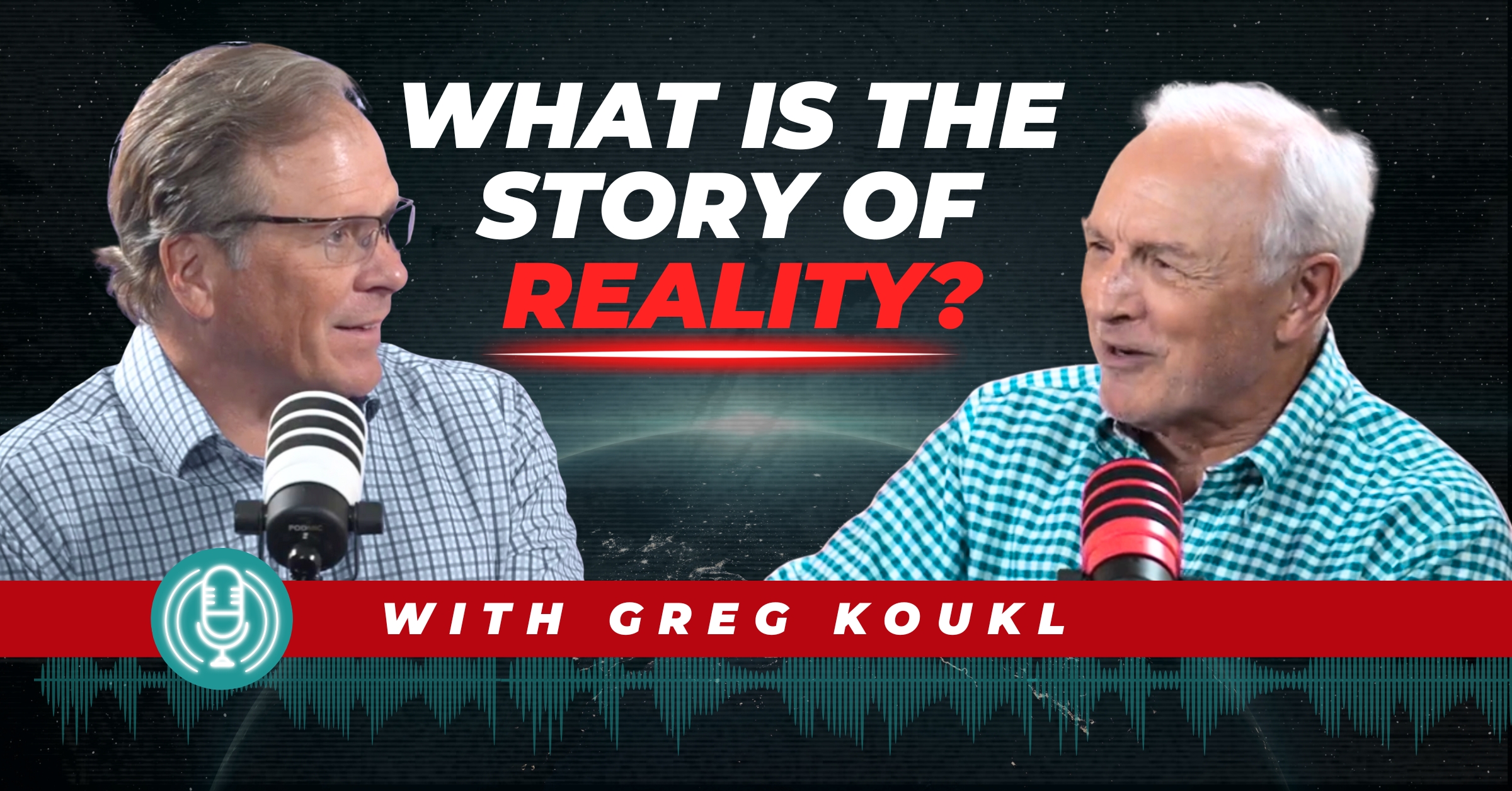There has been a new term floating around the Evangelisphere (if that’s a word, if it’s not, let’s coin it) in the last few years: “post-Christian.”
FreeThinking Ministries[i] recently changed some verbiage on the website to indicate that the mission of the ministry is to equip the church to engage with the post-Christian culture.
Some might say, “you (FTM) minister to all sorts of people all over the globe. You ought to relate to culture in general” not just the post-Christian parts of culture. Yes, this concern covers both pre- and post-Christian cultures and everything in between. But acknowledging that we live and operate within a largely post-Christian culture is still important if we are to equip the church in the West, and in America more particularly, with relevant strategies for preaching the gospel and discipling believers within it.
Coopting Christian Values
There are many reasons this new dynamic is important, but chief among them is that post-Christian cultures seek to coopt Christian values, redefine them, and use them for their own purposes. This penchant is markedly different from a pre-Christian culture which might have hints of Christian ethics within their culture but without explanation.
“Post-Christian cultures seek to coopt Christian values, redefine them, and use them for their own purposes.” – Josh Klein
Guideposts to the Gospel
In a pre-Christian culture these features can be used as guideposts to the gospel. As former missionary Don Richardson points out in his book Eternity in Their Hearts:
“It was the gospel of Jesus Christ which made the difference for Celts, Norsemen and Anglo-Saxons. And that is exactly what it will take for Asmat headhunter-cannibals (indigenous group in New Guinea)! All someone has to do is go to live among the Asmat and communicate the gospel as effectively as someone once communicated it to the Celts, Anglo-Saxons, and other tribes of Northern Europe!”[ii]
The communication of the gospel to pre-Christian nations is much simpler compared to the work of maintaining the gospel in a Christianized nation. It is simpler, but simple doesn’t mean easy. As someone that has multiple friends in the mission field of pre-Christian cultures I can certainly attest to the fact that it is extremely difficult. It can, however, be much simpler to introduce the gospel and connect the dots in their cultural context than it is to attempt to reestablish orthodoxy in cultures that have moved beyond Christianity.
What is a post-Christian culture?
A post-Christian culture is one that has been reached by the gospel, Christianized (to a large extent) and then sought to leave its Christian roots behind.
All the cultures Richardson mentioned in the above quote have followed this pattern. At one point, these cultures were pagan non-Christian nations only to have the gospel of Jesus Christ rock them and change them for hundreds of years. Then, after Christianity, in large part, brought peace and prosperity they chose to move beyond it and, often, back to their pagan roots, only with a twist. The paganism became more syncretistic or New-Age than it was in 600AD but the reversion back to it is palpable. Sound familiar?
The United States has been on this path for quite some time and so too, a reversion to certain forms of paganism. The hallmarks of post-Christian society are coming to fruition before our eyes and the Church in the west must learn how to respond.
Often, as Don Richardson argues, in non-Christian cultures one can find cultural hooks on which to contextualize the gospel in a way that makes sense and draws people in. In these cultures, there is a clarity on what C.S. Lewis called the Natural Law that even those who had never heard of God or Jesus would recognize.[iii] Even if some of the “Natural Laws” within the culture were twisted by sin, the reasoning behind these cultural expectations were based on objective morality, integrity, and honor.
For instance, in another book called Peace Child, Richardson outlines the way he was able to communicate the gospel with a head-hunting tribe in New Guinea called the Sawi.[iv] The Sawi had a rule of natural law called a “Peace Child” between warring tribes and it was this concept that opened their hearts to the gospel after previously believing that Judas was the hero of the gospel story.
How Post-Christian Culture Differs
The story in a post-Christian culture is very different. The stories of the Bible have been popularized, modernized, colloquialized, and made into idioms. We see this assimilation in all sorts of discourse. When one sports team takes on another that is heavily favored the pundits will often use the phrase, “it’s a real David and Goliath match-up.” Decidedly Christian and biblical principles are popularized and culturized as well, such as the golden rule, which is taken from Matthew 7:12 whether people realize it or not, or “with great power comes great responsibility” which is borrowed and changed from Luke 12:48 and popularized by the Spiderman comic franchise. And that is only to name a select few.
Unbiblical phrases have been mixed with the spiritual cultural ethos as well. Sayings like, “God only helps those who help themselves,” or “don’t be so heavenly minded that you are no earthly good.”
It is not so much that people in this culture are ignorant about Jesus but that they think they knows Jesus too well already. Jesus as a figure is often popular within the post-Christian culture[v] but ultimately, upon further examination, it is not the same Jesus we find in the Bible.[vi] The exclusivity of Christ is an issue.
Christianity’s Role in a Post-Christian Culture?
A post-Christian culture is aware of the claims of Christianity but finds them only utilitarian. Often, the question becomes not are these claims literally true but rather, are they efficacious? As one pastor, who led a breakout session recently on evangelism in a post-Christian culture that I attended, said:
“It is not that unbelievers in our post-Christian culture want to know if Christianity is true. It is that they want to know if it works. We need to show them that it works.”
– Bob Thune, Within Reach Conference, 19 January 2023.
His diagnosis is correct, but his prescription lacks the call to gospel exclusivity. A lot of different things “work” for a lot of different people. Buddhists would adamantly insist that the spirituality of Buddhism works for them. This same sentiment seems to be share among at least 60% of self-professed Christians who indicate that Jesus is not the only way to God.[vii]
Even in the atheistic sphere this utilitarian philosophy of religion, and Christianity in particular, seems to be making headway. One such view is espoused by Bret Weinstein, a former college professor and avowed atheist. Weinstein argues that metaphorical truths are necessary to order the world even if they are not literally true.
Not True, but Useful
He goes on to indicate that while something may be literally false its usefulness as a heuristic for ordering the world around us should not be discarded. In a conversation with Jordan Peterson and Sam Harris, Weinstein puts it this way:
“If it were true that religious heuristics actually increase wellbeing by allowing people to, on average, operate in the world in a way that increases wellbeing, what would you say about them then?”[viii]
This is utilitarianism. So long as the theological position works for me (or society) it ought to be followed. Unfortunately, many Christians have fallen prey to this line of thinking. They see Bret Weinstein’s refusal to discard religion as a sort of intellectual victory.
If religious belief is simply a useful heuristic for ordering the world it removes the power of the gospel and offers a gospel of its own making. Anything then, can be the gospel, so long as it works for you or for a society. I find Sam Harris’s retort worth considering in this exchange:
“But [belief in God] wouldn’t make sense for the right reason. Useful fictions have to be retired at some point. Useful truths stay true . . . You can have a completely rational conversation, in terms of human psychology, sociology, and what you want society to look like – about moral truths like the corrosive nature of pornography . . . You don’t have to invoke mythology to do that.”[ix]
As much as I hate to admit it Harris is mostly right here. His position is more tenable to the human pursuit of truth than Weinstein’s. While it might sit better with religious pluralists, secularists, and even some Christians to hear that religious thought is still useful to order society insofar as we have no better option, it is less than helpful. Harris is correct, it is either true that God exists, or it is not true, and any opining for metaphorical truths to be embraced to have our cake and eat it too simply makes belief utilitarian rather than necessary.
It is not enough that a certain belief system works, and the Church must not fall into the trap of trying to prove that it does. Because the gospel only promises things yet to be seen and grasped, it does not prove that life will be ultimately understandable or easy. Buddhism might work inasmuch as one uses it to accomplish inner peace (whatever that means), or structure to the world. Whether it is truly useful or not, however, rests on its being objectively true.
Competing Gospels
In a post-Christian culture, we are struck, not with opposing religious truth claims, but with opposing gospels that promise to bring about hope, satisfaction, and peace. These competing gospels can often invoke the name of Jesus. In fact, progressive Christianity has made its hay on becoming a heuristic style gospel and should serve as a warning to believers embracing Weinstein’s thoughts.
In a post-Christian culture, words like truth, love, hope, and affirmation have all been personalized and redefined to suit our utilitarian mindset. Progressive Christianity, for instance, does not so much ask what is true but offers that whatever feels most loving is true. This is something new to the Western church, and it is a competing gospel that is nefarious because of its ability to morph from person to person under the guise of usefulness.
A post-Christian culture seeks to use aspects of Christianity without maintaining the foundation of it. This idea is not new. In the 18th century German philosopher Immanuel Kant sought to square the circle of unbelief and the usefulness of Christianity as a moral framework for society.[x] Removing Christ from the center of morality places the individual as the arbiter of it. Kant reasoned that we only know Jesus as moral exemplar because we already have fashioned the highest ideal of what a moral man ought to look like, thus, we judged Christ before he was incarnate.
But this is, of course, exactly backwards to the Christian tradition. Christ is not simply a moral exemplar because we could not imagine a higher moral standard. He is the moral exemplar because He sets the highest moral standard in Himself as He reveals Himself in the scriptures. Objective moral values are discovered not invented.
Revising Christ
A post-Christian culture sheds the skin of orthodoxy, in a sense, and embraces the subjective nature of the moral good. That is to say that Christ is edited by the moral arbiters of the day. Did Jesus ever really say that homosexuality was a sin or that he was divine? A post-Christian culture can construct a morality borrowing from Christianity, secularism, and other religions and superimpose it on itself. We see a rise in moral language, even invoking the name of Christ, at the same time as the normalization of historically immoral behaviors such as polyamory, pornography, and earth worship. It is this propensity of the culture to which I am referring when I say that evangelism and ministry in a post-Christian culture is more complex than within a non-Christian culture.
Often, the language barrier is an issue. When we speak of justice, love, truth, and fulfillment we are speaking cross-culturally, but because of the Christian past, ideas about Jesus have been erroneously imposed on these new definitions. To make headway we must first establish coherent agreement at the most basic levels, but this is made difficult because the culture, allegedly has progressed beyond the need for foundational truths. The truth of the gospel is inverted to focus mainly on self-actualization and feelings of being an authentic self. This inversion might not challenge missionaries and pastors in pre-Christian settings, but it’s a primary concern for those doing ministry within a post-Christian context.
Post-Christianity says, “we tried that already and now we are beyond it.” The challenge for the church is to expose this lie for what it is. How does one move beyond objective reality and truth? Incidentally, “moving beyond it” is more like reverting back to pagan roots. The worship of nature, self, sex, and hedonistic tendencies. These are not new developments, but they are experienced and promulgated anew in a post-Christian context, often maintaining the language of Christianity to bolster the regressive worship.
This shift is recent in the United States. As recent as 10 years ago political candidates from both parties affirmed the classical definition of marriage, the morality of certain sexual standards, and, even if pro-choice, the recognition that abortion was a tragedy and ought to be safe, legal, and rare.[xi]
What are we to do?
Once the culture flipped though, these supposedly self-evident truths were suddenly up for grabs. People that spent their lives arguing for reason and science to be the basis of morality in society suddenly found themselves arguing for forced vaccination[xii] and for transgenderism.[xiii] When you remove the foundation, everything becomes shaky. Then reintroducing that abandoned foundation seems antiquated. So, what are we to do?
The funny thing about a post-Christian culture is that it relies on the insular or adaptive nature of the Church. The post-Christian culture is more than happy to entertain Christians so long as they isolate themselves into their own groups and, all too often, Christians comply. This self-isolation has happened in Europe and England and it’s happening right now in Canada and the United States. As a pastor friend once said to me, “the Christian life is to be personal, but it is not private.”
On the other hand, the church might try to remain relevant by compromising historic truths for cultural cachet. We sacrifice the relevance of the gospel for the relevance of our popularity.
Neither strategy is tenable for discipling the nation. There is another option, but it is not comfortable. Engage with the post-Christian culture without compromise but with understanding (1 Chron. 12:32). There is an opportunity in a post-Christian culture if one is courageous enough to recognize it. But it comes with risk. Risk of denigration or loss of respect. At least for a time. The truth will set us free (John 8:31-32). God will not be mocked and his Church will remain victorious (Matt. 16:18).
Footnotes:
[i] The author, Josh Klein is a staff writer and speaker with Free-Thinking Ministries
[ii] Richardson, Don. Eternity in Their Hearts: Revised, Regal Books, Ventura, CA, 1984, pp. 118–119.
[iii] Clive S. Lewis, Mere Christianity (London, UK: Geoffrey Bles, 1952; digitally republished as public domain, Canada: Samizdat, 2014), 13-22, accessed 25 March 2024 at: https://www.samizdat.qc.ca/vc/pdfs/MereChristianity_CSL.pdf
[iv] Don Richardson, Peace Child (Norwood, MA: Regal, 1985).
[v] https://www.barna.com/research/openness-to-jesus/
[vi] https://www.christianpost.com/news/60-of-young-adults-say-jesus-isnt-the-only-way-to-salvation.html
[vii] Ibid.
[viii] Originally in Jordan Peterson v. Sam Harris debate, moderated by Bret Weinstein. Vancouver BC, Canada: Pangburn Philosophy, 23 June 2018), 01:15:36-01:16:14, accessed 25 March 2024 at: https://www.youtube.com/watch?v=h1oaSt60b0om, quoted in https://epiphanyaweek.com/2019/10/20/theism-atheism-and-antitheism-sam-harris-is-wrong-part-3/.
[ix] Ibid., 01:59:03-02:00:11.
[x] https://philarchive.org/archive/PALCKJ
[xi] https://www.guttmacher.org/gpr/2006/03/toward-making-abortion-rare-shifting-battleground-over-means-end
[xii] https://www.youtube.com/watch?v=cMaHKykfdcQ
[xiii] https://www.youtube.com/watch?v=jBl9qwVDvIY
Recommended resources related to the topic:
Counter Culture Christian: Is the Bible True? by Frank Turek (Mp3), (Mp4), and (DVD)
Was Jesus Intolerant? by Frank Turek (DVD and Mp4)
Correct not Politically Correct: About Same-Sex Marriage and Transgenderism by Frank Turek (Book, MP4, )
Jesus vs. The Culture by Dr. Frank Turek DVD, Mp4 Download, and Mp3
Reflecting Jesus into a Dark World by Dr. Frank Turek – DVD Complete Series, Video mp4 DOWNLOAD Complete Series, and mp3 audio DOWNLOAD Complete Series
____________________________________________________________________________________________________________________________________________________
Josh Klein is a Pastor from Omaha, Nebraska with over a decade of ministry experience. He graduated with an MDiv from Sioux Falls Seminary and spends his spare time reading and engaging with current and past theological and cultural issues. He has been married for 12 years to Sharalee Klein and they have three young children.
Originally posted at: Post-Christianity… What’s That? | Free Thinking Ministries











